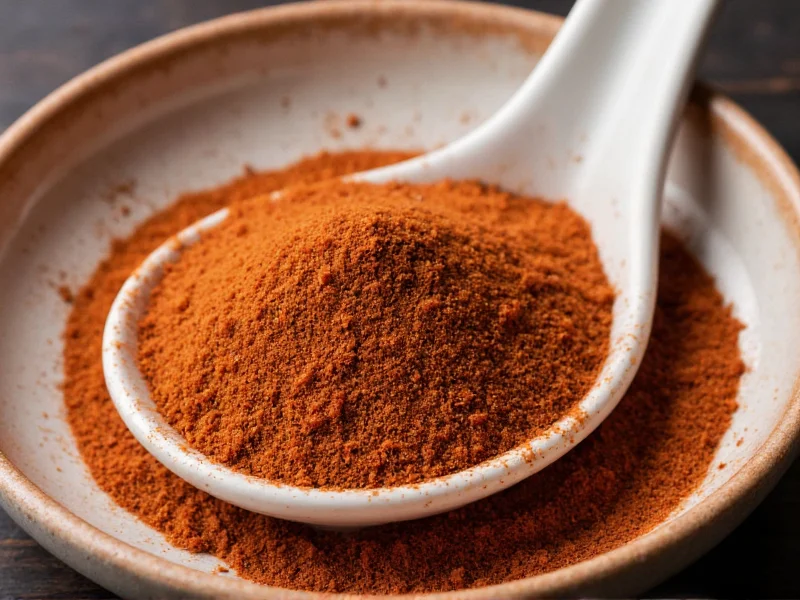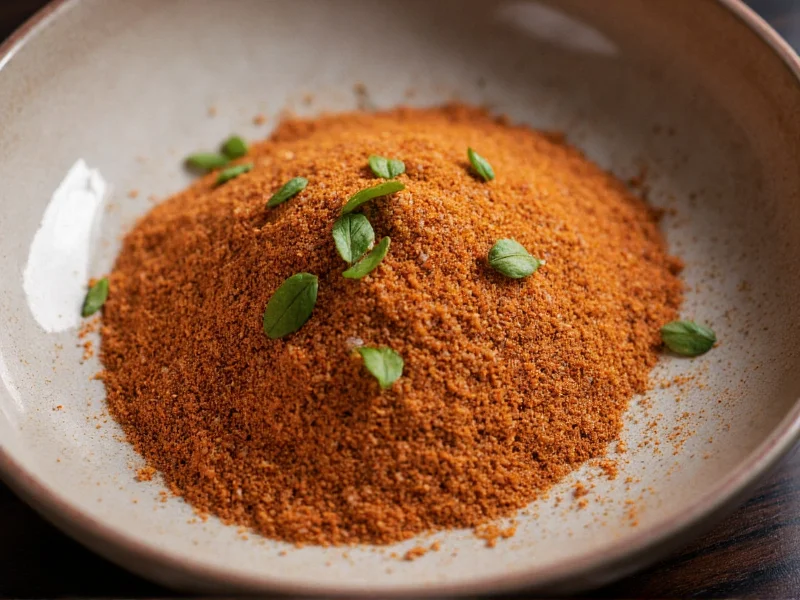Why MSG Myths Still Haunt Your Kitchen
Many home cooks avoid umami seasoning due to decades-old "Chinese Restaurant Syndrome" fears, despite scientific consensus debunking MSG as unsafe. This confusion stems from conflating pure MSG with fake MSG products containing additives. In reality, Ajinomoto—the world's first MSG producer—has been safely enhancing dishes since 1909. As Vietnamese culinary expert Andrea Nguyen documents, her mother used bột ngọt ("sweet powder") sparingly for generations to elevate flavors, never causing adverse effects when dosed correctly.
What Ajinomoto Umami Seasoning Actually Is
Contrary to popular belief, Ajinomoto isn't a "secret sauce" but pure monosodium glutamate—the sodium salt of glutamic acid, an amino acid naturally present in tomatoes, cheese, and seaweed. Developed by Dr. Kikunae Ikeda in 1909, it isolates umami (the fifth taste) for precise culinary control. Unlike vegetable extracts marketed as "MSG alternatives," authentic Ajinomoto contains only crystallized glutamate, verified halal with no animal derivatives. This purity explains its 100-year culinary dominance across Japan, Vietnam, and beyond.
| Ingredient | Sodium (mg) | Calories | Umami Intensity |
|---|---|---|---|
| Ajinomoto MSG | 125 | 0 | ★★★★★ |
| Soy Sauce | 290 | 3 | ★★★☆☆ |
| Dried Shiitake | 10 | 2 | ★★★☆☆ |
| Fake "MSG" Blends | Varies | 5-15 | ★☆☆☆☆ |
Source: Nutrition Facts for Ajinomoto vs USDA FoodData Central

Cultural Wisdom: How Generations Use It Right
In Vietnam, MSG (bột ngọt) has functioned as culinary currency since pre-1934, with regional names reflecting its role: mì chính (North) and vị tinh (Central). As Nguyen observes, home cooks treat it like salt—never the star, but a flavor amplifier. During food shortages, it was rationed for its ability to make modest ingredients taste satisfying. This historical context explains why professional chefs globally now embrace it: Michelin-starred kitchens use MSG to reduce sodium by 30% while boosting savoriness, per Viet World Kitchen's research.
When to Use (and Avoid) Ajinomoto
Timing and context determine MSG's effectiveness. Use it to rescue underwhelming broths or roasted vegetables; avoid it with already umami-rich foods like aged Parmesan. Here's your decision framework:
| Scenario | Use MSG? | Pro Tip |
|---|---|---|
| Clear broths/soups | ✓ Yes | Add at end of cooking; 5g per liter |
| Tomato-based sauces | ✗ Avoid | Natural glutamate suffices |
| Lean meats (chicken breast) | ✓ Yes | Rub 2g/kg before searing |
| Fermented foods (kimchi) | ✗ Avoid | Umami compounds already developed |
| Low-sodium diets | ✓ Strategically | Replace 25% salt with MSG for same savoriness |
Source: Ajinomoto Product Specifications

Avoiding Costly Mistakes: Quality Checks
"Fake MSG" products—often labeled "umami seasoning"—contain fillers like sugar or yeast extract, diluting pure umami impact. To ensure authenticity:
- Check ingredients: Only "monosodium glutamate" should appear (Ajinomoto Philippines confirms 100% purity)
- Crystal test: Genuine MSG forms fine, non-clumping white crystals (unlike gritty blends)
- Smell check: Odorless when pure; any scent indicates additives
Store in airtight containers away from humidity—shelf life exceeds 5 years per manufacturer specs. Never confuse it with meat tenderizers, which contain enzymes that degrade proteins.
Final Recommendations for Perfect Results
For foolproof integration: Always dissolve MSG in liquid first (e.g., broth or wine) before adding to dishes. Start with 0.1% of total ingredient weight (1g per kg), tasting incrementally. In professional kitchens, it's used to balance high-acid dishes—like cutting tomato sharpness in ragù—without masking freshness. Remember Nguyen's mother's wisdom: "MSG should make food taste more like itself, never like MSG." For allergy-sensitive households, consult an allergist; true MSG intolerance affects <0.1% of people per FDA studies.
Everything You Need to Know
Yes. Multiple studies, including FDA reviews, confirm pure MSG is safe for daily use at culinary doses (up to 3g per meal). Ajinomoto's 125mg sodium per 1g serving allows flavor enhancement with less sodium than salt. As Viet World Kitchen notes, generations in Asia have used it safely since the 1930s when applied sparingly.
MSG targets umami receptors specifically, enhancing savory depth without salty taste. Salt (sodium chloride) primarily triggers salty receptors. Per nutritional data, MSG provides 5% daily sodium per gram versus salt's 40%, allowing 30% sodium reduction while maintaining flavor intensity—ideal for heart-healthy cooking.
Absolutely. Authentic Ajinomoto MSG is vegan—derived from fermented sugarcane or tapioca, with no animal products. It's halal-certified per manufacturer specifications. Use it to boost umami in mushroom stews or miso soup where fish-based dashi isn't suitable.
This indicates impure "MSG" products. Genuine monosodium glutamate is flavor-neutral; metallic notes come from fillers in fake blends. Always verify 100% monosodium glutamate on labels. As Andrea Nguyen explains in her guide, proper MSG should make soup taste more like itself—not add new flavors.
Stored in a cool, dry place (like salt), it remains potent for 5+ years per Ajinomoto Philippines. Humidity causes clumping but doesn't degrade quality—break crystals and use normally. Never refrigerate, as moisture accelerates degradation.










 浙公网安备
33010002000092号
浙公网安备
33010002000092号 浙B2-20120091-4
浙B2-20120091-4